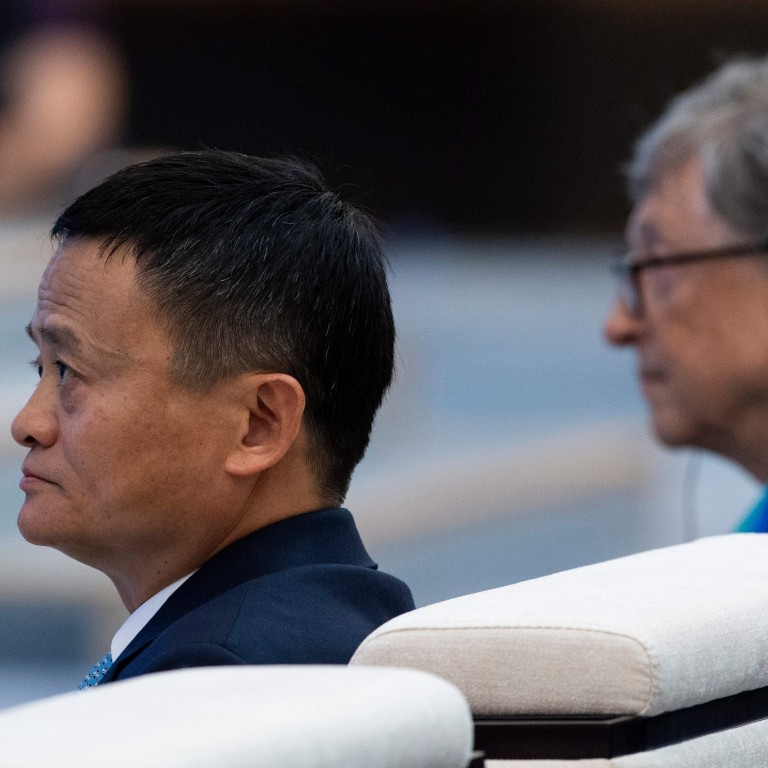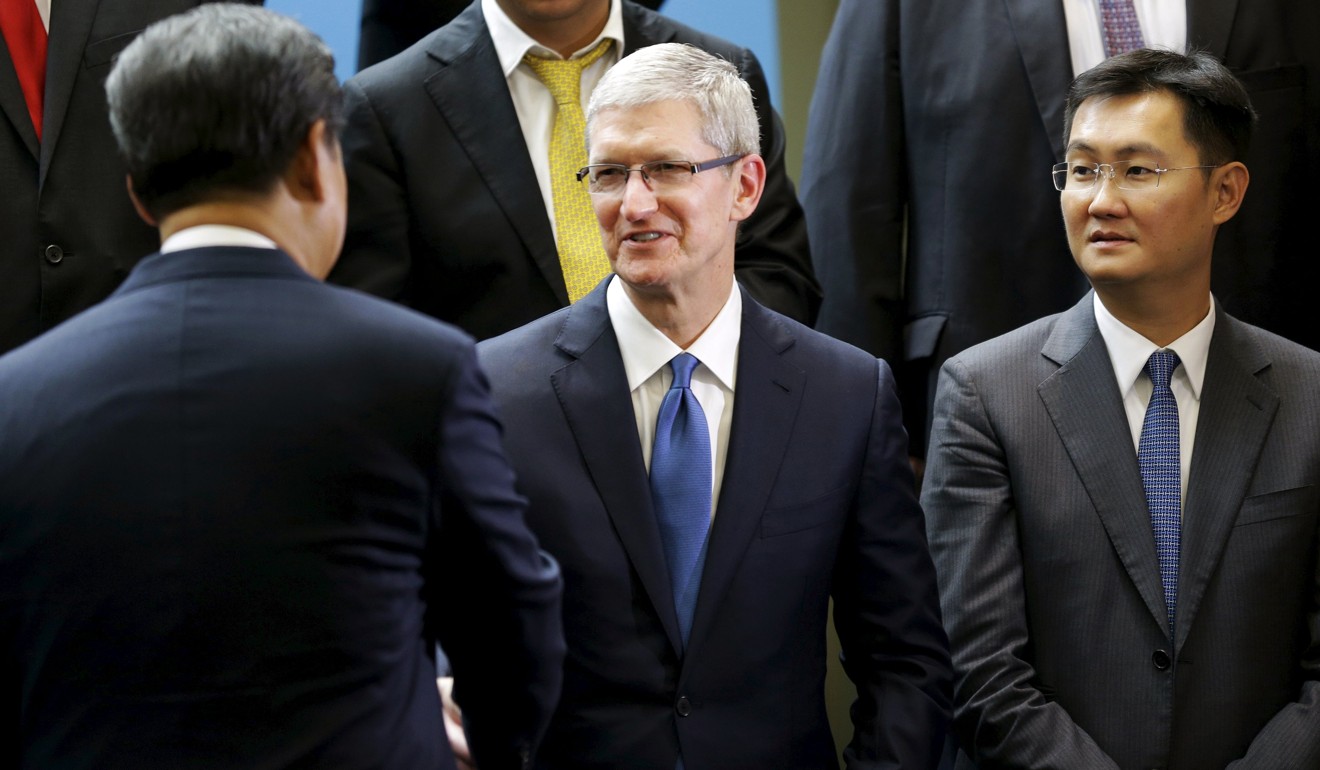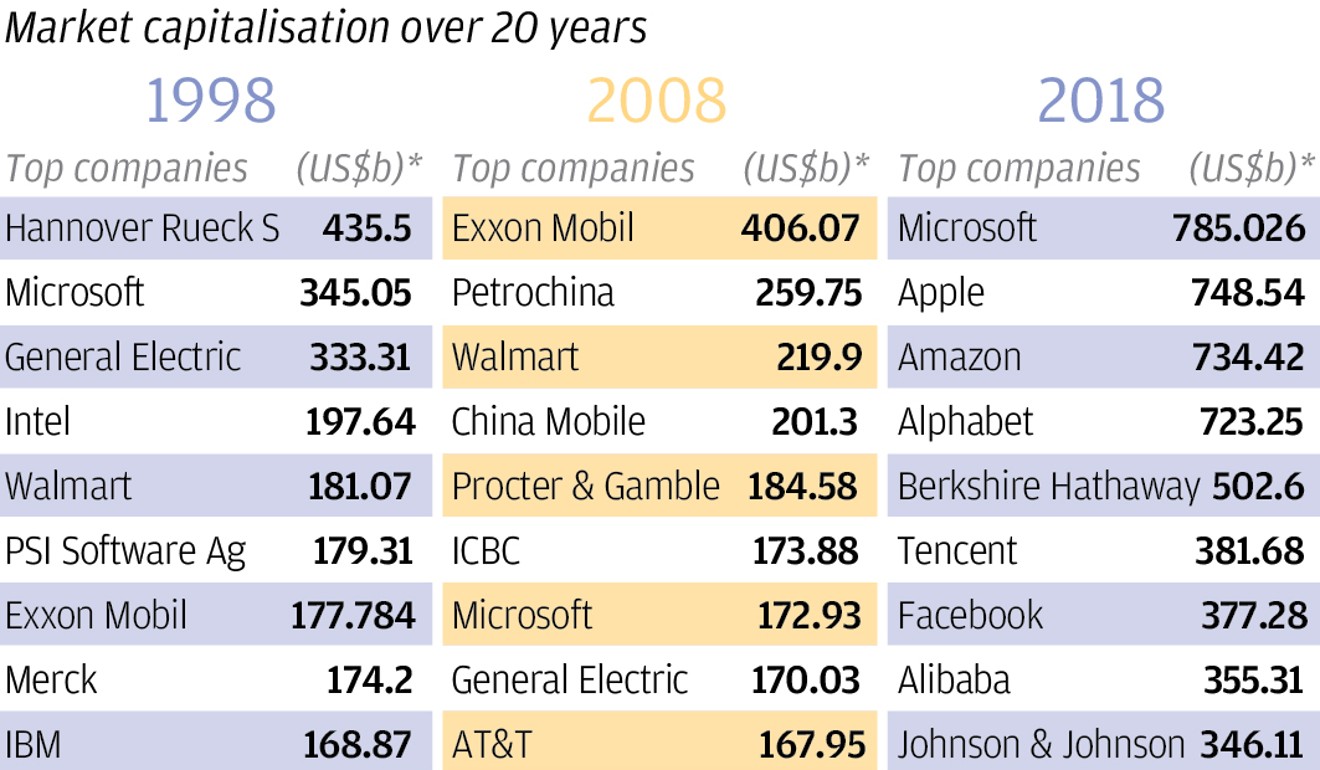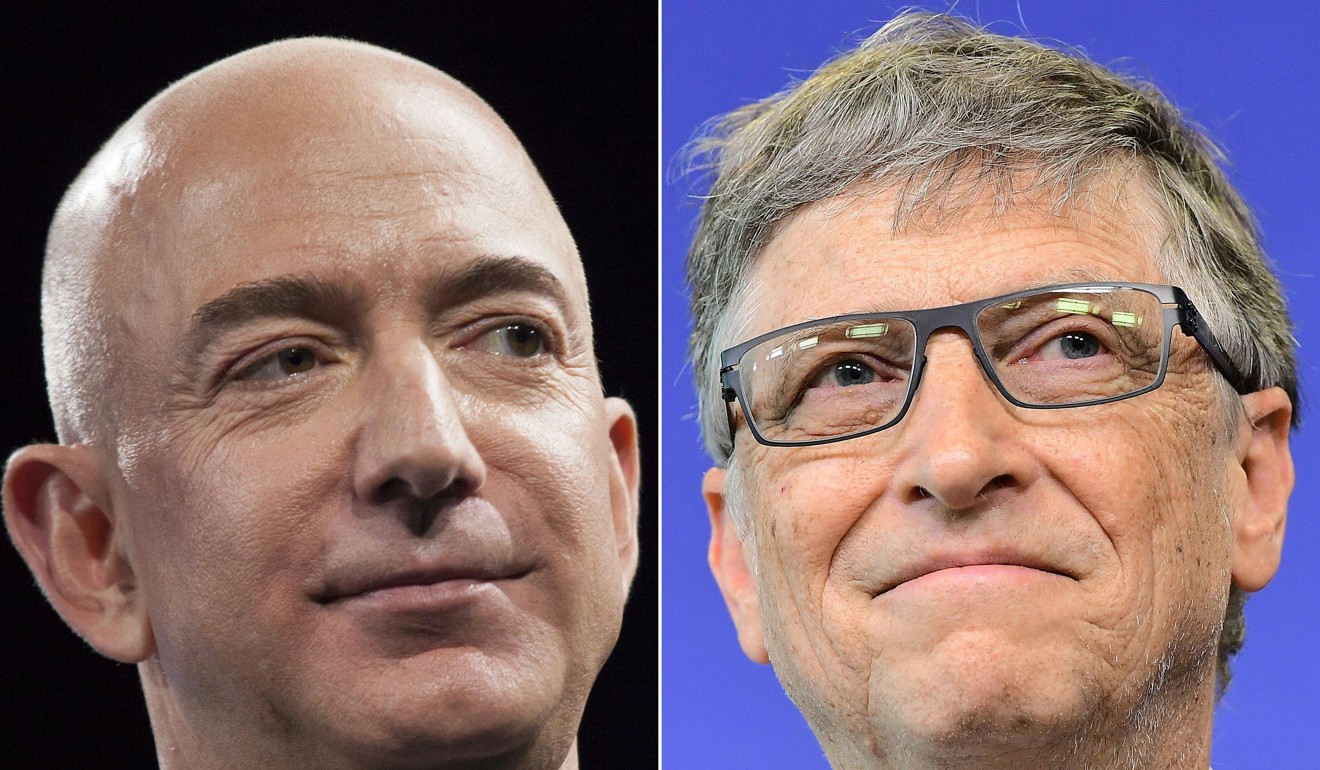
From toothpaste to short video: a snapshot of how the world’s top companies have changed over 20 years
- Tech companies now lead the way despite a swoon towards the end of 2018 on valuation concerns – and Microsoft is on top
- Big Oil and banks still rank among the top companies, providing goods and services people use every day
Remember 1998? It was the year when Titanic swept the Oscars, Britney Spears released her debut single “Baby One More Time”, and people were fiddling with the snake game on their Nokia 5110.
It was also the time when General Electric, Coca-Cola and ExxonMobil were among the most valuable companies in the world, with German reinsurer Hannover Re topping the list.
Fast forward 20 years and market ascendancy has changed dramatically with technology companies leading the way despite a swoon towards the end of 2018 because of valuation concerns amid an escalating US-China trade war. And Microsoft, which made its stock market debut in 1986, is now on top.
While Big Oil and banks still rank among the top companies, providing goods and services people use every day, the biggest names now are Facebook, Apple, Amazon.com, Netflix and Google, collectively known as the FAANGs and companies which all cater to some extent to people’s online consumption habits.
In a sign of the times, Procter & Gamble, which makes consumer essentials from toothpaste to shampoo, has fallen behind social media giant Facebook, whose platform people use to post pictures of their everyday lives, share news and chat.
This shift in the make-up of the world economy reflects one of the key themes of the 21st century – disruption – whereby technology upends traditional industries and ways of life, redefining the products and services people need and the companies they invest in.
As of December 31 last year, the four highest-valued companies in the world – Microsoft, Apple, Amazon and Google’s parent company Alphabet – were all tech stocks. Microsoft and Apple have been around longer than e-commerce giant Amazon and internet behemoth Google, indicating their ability to sustain and adapt their business models to rapidly-changing market conditions over time.
Amazon, which joined Apple in the US$1 trillion club in September, was not even in the world’s 100 biggest companies in 2008, but has soared up the rankings in the past few years after diversifying from books into almost everything amid a huge move away from the high street and malls to online shopping.

Warren Buffett’s investment firm Berkshire Hathaway, a major investor in Apple, comes in at fifth spot and is the only non-tech company among the top five, according to Bloomberg data. Meanwhile, China’s social media and gaming giant Tencent Holdings and e-commerce leader Alibaba Group Holding have captured the rise of the country’s middle class to take up the sixth and eighth spots respectively as consumption continues to grow.
New York-listed Alibaba is the parent company of the South China Morning Post.
The emergence of China as a key player in the disruptive technological wave sweeping the world indicates the likely end, perhaps, of America’s economic dominance. Some would say the current trade war between the US and China is an outward manifestation of that underlying tension.
In total, tech companies snapped up seven seats among the world’s 10 most valuable companies in 2018, according to Bloomberg data.

“The tech companies, which are closely sought after by investors today, have introduced innovation in various industries by integrating closely with the economy and peoples’ lives through meaningful applications,” said Shen Yi, associate professor of international relations at Fudan University in Shanghai. “Market value is not the ultimate indicator of how important these companies have become, or whether the new economy is heading in the right direction. We should also look at their contribution to job creation and economic growth.”
Apple, which became the world’s first public company to gain a market value of US$1 trillion in August last year before succumbing to a recent slump on slower sales growth, was only the 57th biggest company globally in 2008. It was nowhere to be seen in 1998. But it has ridden a boom in consumer electronics, producing innovative and simply-designed products supported by an ecosystem of apps in an era of deepening broadband penetration.
Microsoft, the software leader in the personal computer era, like Apple, is a company that belongs in the “sustain” group of companies, as opposed to the “rising” category of companies such as Amazon, Google and the recent Chinese upstarts.
It was one of two technology companies in the 1998 top 10, ahead of computer chip maker Intel Corp. In 2008, Microsoft was the only tech company in the top 10, while oil giants ExxonMobil and PetroChina topped the chart.
Despite declines in sales for its flagship Windows operating system and missing out initially on the consumer switch to the mobile internet, Microsoft has pushed into the fast-growing cloud computing business, which enables companies to buy, sell and distribute a range of software and other digital assets over the internet as an on-demand service.
Azure, its cloud product, reported first-quarter earnings growth of 76 per cent year on year in October, challenging public cloud market leader Amazon Web Services. Microsoft ended last year with a market cap of US$785 billion – making it the most-valuable company in the world.
In contrast with Microsoft’s ability to reinvent itself has been the notable decline of General Electric, which is no longer in the top 100 global companies, falling from third spot in 1998. As economies boomed and US stock indexes soared, GE has collapsed, destroying well over US$100 billion of shareholder wealth in the process. The jury is out on exactly why it has become a “falling” company, but what is clear is the humbling of a former industrial giant in the face of rapid and unrelenting technological change.

China’s crop of technology companies meanwhile are harnessing the power of the country’s immense internet population of more than 800 million to rise. Tencent’s ubiquitous messaging app WeChat has more than 1 billion monthly active users. Alibaba, China’s biggest e-commerce player, generated US$30.8 billion in sales in the 24-hour shopping event known as Double 11 in November.
Tencent was the first Asian company to top US$500 billion in value in 2017, and closed last year with a market cap of US$382 billion – ahead of Facebook. However, even Tencent has not been immune to the vagaries of the market, losing around US$190 billion of value within eight months during 2018 on negative regulatory and economic news before recovering some ground towards the end of the year.
And Facebook, the social media darling which carved out a huge share of the red-hot online advertising boom over the past decade, also succumbed to setbacks in 2018 as it faced a backlash over data privacy and fake news issues that saw its founder and chief executive Mark Zuckerberg apologising to the US Congress.
Facebook fell over a third from a record high in July, closing out 2018 with a market value of US$377 billion – putting it in seventh place globally.
So, technology is clearly in the vanguard of the new economy and those companies that have failed to adapt to disruptive change over the past 20 years have fallen away.
Tastes have not changed that much though as people flocked to the cinema in 2018 to watch Marvel Studios’ Avengers franchise, danced to pop princess Dua Lipa and battled each other online in the video game Fortnite.

